Ferulic acid functions as an antioxidant in plant cells. Certain Ferulic acid skin care products contain it to help reduce inflammation, signs of aging, and even skin tone. People with sensitivities or skin conditions, on the other hand, should test any product containing it on a small area before applying it more widely. It has gained popularity in the skincare industry due to its many benefits for the skin. In this blog, we'll explore the uses and benefits of ferulic acid for skin.
What is Ferulic acid?
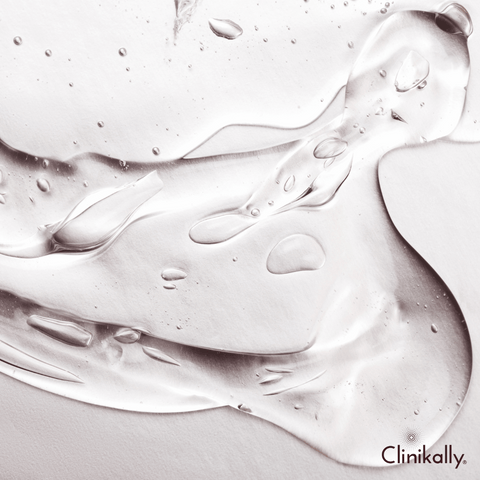
Ferulic acid is a naturally occurring substance that can be discovered in many different fruits, vegetables, and grains, including oranges, rice, and oats. It is a member of a class of substances called hydroxycinnamic acids, which are potent antioxidants. Ferulic acid is often used in the food and cosmetic industries as a natural preservative and as an ingredient in skincare products due to its antioxidant and anti-inflammatory properties. When applied topically, it can help protect the skin from damage caused by UV radiation and other environmental stressors, and may also help improve skin tone and reduce the appearance of fine lines and wrinkles. Ferulic acid is commonly paired with other antioxidants such as vitamin C and vitamin E for added benefits.
Benefits of Ferulic acid for skin
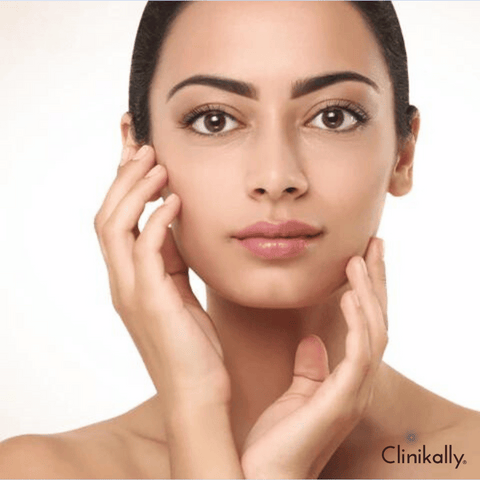
Ferulic acid offers a number of benefits for the skin, including:
-
Antioxidant protection: Ferulic acid is a powerful antioxidant that can help protect the skin from damage caused by free radicals. These free radicals are unstable molecules that can damage cells and cause premature aging of the skin, such as wrinkles, fine lines, and age spots.
-
UV protection: Ferulic acid can also help protect the skin from damage caused by UV radiation. Studies have shown that when combined with other antioxidants such as vitamin C and vitamin E, ferulic acid can increase the effectiveness of sunscreen and reduce sunburn.
-
Anti-inflammatory properties: Ferulic acid has anti-inflammatory properties that can help reduce redness and irritation in the skin. This makes it particularly useful for people with sensitive or acne-prone skin.
-
Brightening effects: Ferulic acid can help brighten the skin by reducing the appearance of dark spots and hyperpigmentation.
-
Collagen production: Ferulic acid has been shown to stimulate collagen production in the skin. Collagen is a protein that gives skin its strength and elasticity, and its production decreases with age.
Overall, ferulic acid is a versatile substance that can support skin health and protection. It can be used in homemade skincare recipes and is frequently found in skincare products like serums, creams, and moisturizers. A patch test is essential before using any new skincare product, and you should consult a dermatologist if you have any questions.
How to choose a Ferulic acid serum for skin
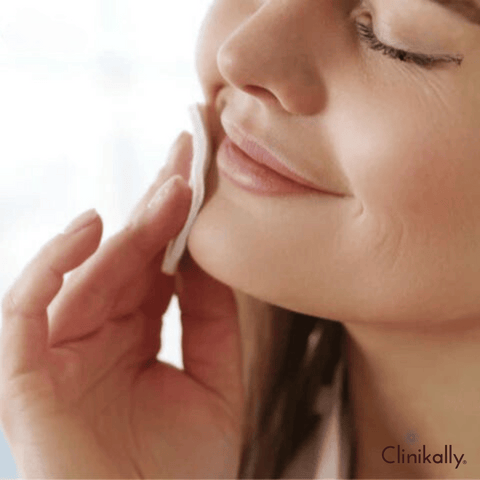
When choosing a Ferulic acid serum, there are several factors to consider to ensure that you choose the right one for your skin:
-
Concentration: Look for a serum that contains a concentration of at least 0.5% ferulic acid. Higher concentrations, up to 1%, may provide even greater benefits.
-
pH: Ferulic acid is most effective at a pH between 3 and 4. Look for a serum with a pH within this range to ensure maximum effectiveness.
-
Formulation: Ferulic acid is often combined with other antioxidants such as vitamin C and vitamin E for added benefits. Look for a serum that contains these ingredients as well.
-
Texture: Choose a serum with a texture that is suitable for your skin type. If you have oily skin, you may prefer a lightweight serum, while those with dry skin may prefer a more moisturizing formula.
-
Brand reputation: Look for a serum from a reputable brand that uses high-quality ingredients and has a good reputation for effectiveness.
-
Packaging: Ferulic acid can deteriorate over time because it is sensitive to air and light. Look for a serum that comes in a dark, opaque bottle with a pump or dropper dispenser to help protect the ingredients.
Overall, selecting a Ferulic acid skin serum that satisfies these requirements can help guarantee that your skin receives the most advantages. A patch test is essential before using any new skincare products, and you can consult dermatologists online if you have any questions.
Ferulic acid for antioxidant power
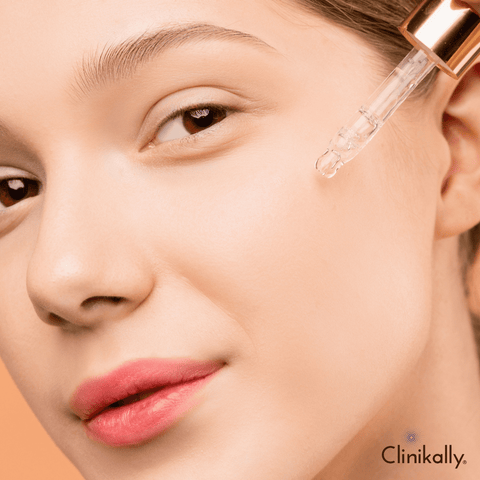
Ferulic acid is a potent antioxidant that has been shown to have a high antioxidant capacity. Free radicals are unstable molecules that can harm cells and speed up aging and disease. Antioxidants are substances that can neutralize these molecules. In comparison to other common antioxidants like vitamin E and vitamin C, ferulic acid has been found to be more effective at scavenging free radicals.
According to research, ferulic acid can help shield the skin from oxidative stress brought on by pollutants, UV rays, and other environmental stressors. This may lessen the appearance of wrinkles, fine lines, and other aging symptoms. In addition to being an antioxidant, ferulic acid has also been shown to have anti-inflammatory properties. These properties can help lessen skin redness, irritation, and other signs of inflammation. It is therefore especially beneficial for those with sensitive skin or acne-prone skin.
Overall, ferulic acid is a powerful antioxidant that can help protect the skin from damage and promote healthy aging. It is often used in skincare products such as serums, moisturizers, and sunscreens to provide these benefits.
Ferulic acid for sun protection

Ferulic acid has been shown to offer protection against sun damage. The formation of wrinkles, fine lines, age spots, and other signs of photodamage can be caused by UV radiation from the sun, which is a major contributor to skin damage and premature aging.
Research has shown that ferulic acid can increase the efficiency of sunscreen and shield the skin from the damaging effects of UV radiation when combined with other antioxidants like vitamin C and vitamin E. It has also been found to help reduce the severity of sunburn and prevent the formation of DNA damage in skin cells. In addition, ferulic acid has been found to have anti-inflammatory properties that can help reduce redness and inflammation in the skin after sun exposure. This can help soothe and calm the skin and promote healing.
Overall, incorporating ferulic acid into your skincare routine, either through a serum, moisturizer or sunscreen, can provide protection against sun damage and help promote healthy aging of the skin. It is important to note, however, that while ferulic acid can enhance the effectiveness of sunscreen, it should not be used as a replacement for sunscreen. A broad-spectrum sunscreen with an SPF of at least 30 should still be used daily as the first line of defence against sun damage.
Ferulic acid for free radical damage
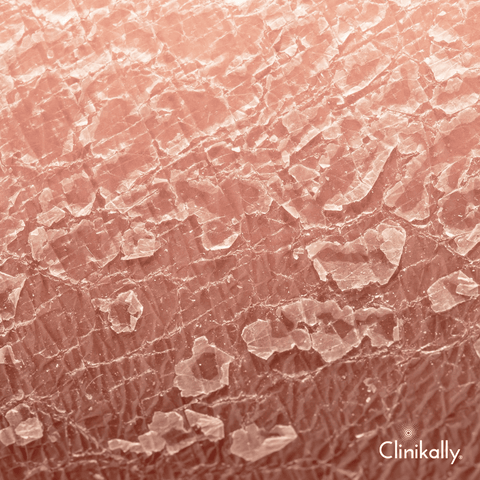
Ferulic acid is a potent antioxidant that can help fight against free radicals. Free radicals are unsteady molecules that can harm DNA, proteins, and cells, resulting in disease, early aging, and other health issues. Ferulic acid can help neutralize free radicals and stop them from causing damage to the skin when applied topically. Additionally, studies have demonstrated that ferulic acid can boost the antioxidant activity of other antioxidants, including vitamins C and E. This means that ferulic acid can offer even more defense against free radicals when combined with these other antioxidants.
Ferulic acid has also been found to have anti-inflammatory properties, which can help reduce inflammation caused by free radical damage. Chronic inflammation can cause a number of health issues, including skin aging. Inflammation is a typical reaction to free radical damage. Overall, adding ferulic acid to your skincare regimen can help shield your skin from free radical damage and encourage healthy aging. For the best results, look for skincare products that combine ferulic acid with other antioxidants.
Ferulic acid for skin brightening
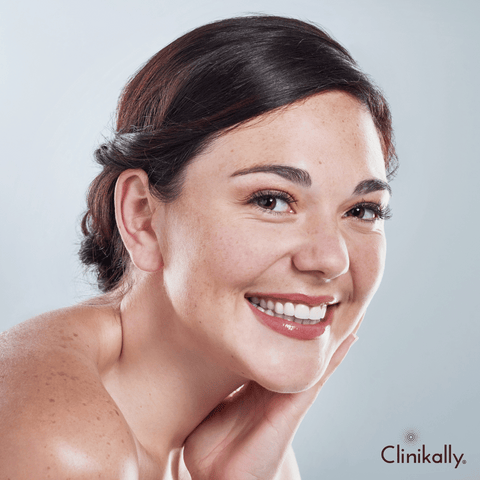
Ferulic acid is a naturally occurring antioxidant found in various fruits and vegetables, such as oranges, apples, and rice bran. It has gained attention in recent years for its potential to brighten the skin and improve its overall appearance.
When applied topically, ferulic acid can help to reduce the appearance of dark spots and hyperpigmentation caused by sun damage or aging. It works by inhibiting the production of tyrosinase, an enzyme responsible for producing melanin. As a result, the skin becomes more even-toned and radiant.
In addition to its brightening effects, ferulic acid also has powerful antioxidant properties, which can help to protect the skin from free radical damage caused by UV rays and environmental pollutants. This, in turn, can help to prevent premature aging and keep the skin looking youthful and healthy.
Ferulic acid is often used in conjunction with other antioxidants, such as vitamin C and E, to enhance its brightening and protective effects. It is available in various skincare products, including serums, creams, and masks, and can be used by individuals of all skin types.
Overall, ferulic acid is a promising ingredient for those looking to brighten and improve the appearance of their skin while also providing protection against environmental stressors.
Ferulic acid for skin hydration
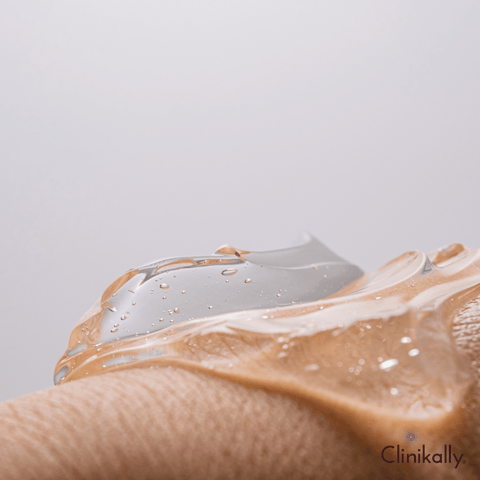
Ferulic acid is a phenolic substance that is frequently present in the cell walls of plants, especially in cereal grains and rice bran. It is well known to possess strong anti-inflammatory and antioxidant properties, and extensive research has been done on its potential health advantages. However, there is limited research on the direct hydrating properties of ferulic acid. While some studies suggest that it may have moisturizing effects on the skin, this has not been conclusively proven.
According to a study found in the Journal of Agricultural and Food Chemistry, ferulic acid can improve skin's ability to retain water and stop transepidermal water loss, which may lead to better hydration. However, more research is needed to fully understand the hydrating properties of ferulic acid.
Overall, there is some evidence to support the possibility that ferulic acid has hydrating properties, but more studies are required to confirm this and pinpoint the full scope of its effects.
Ferulic acid for boosting collagen
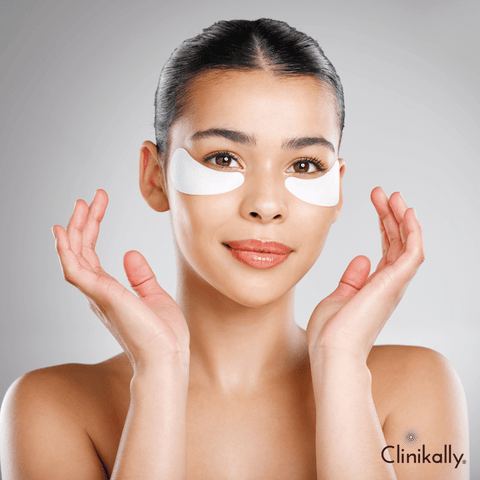
Two proteins, collagen and elastin, are essential for preserving the structure, elasticity, and general health of the skin. Our bodies produce less collagen and elastin as we age, which can lead to wrinkles, sagging skin, and other aging symptoms.
There are several ways to boost collagen and elasticity in the skin:
-
Use skincare products with collagen-boosting ingredients: Certain ingredients, such as retinol, vitamin C, and peptides, have been shown to stimulate collagen production in the skin. These ingredients can be found in various skincare products such as serums, creams, and masks.
-
Stay hydrated: Drinking plenty of water is essential for maintaining skin health, as dehydration can make the skin look dull and saggy. When the skin is well-hydrated, it appears plumper and more elastic.
-
Protect your skin from the sun: Exposure to the sun's UV rays can break down collagen and elastin fibers in the skin, leading to premature aging. Wearing sunscreen daily and limiting your exposure to the sun can help prevent this damage.
-
Eat a healthy diet: A diet rich in antioxidants, healthy fats, and collagen-boosting nutrients such as vitamin C, zinc, and copper can help promote collagen and elastin production.
-
Consider supplements: Certain supplements, such as collagen peptides, have been shown to improve skin elasticity and hydration.
Overall, to support skin health and encourage the production of collagen and elastin, maintaining healthy skin necessitates a combination of dietary decisions, skincare products, and lifestyle adjustments.
Ferulic acid for hyperpigmentation and fine lines
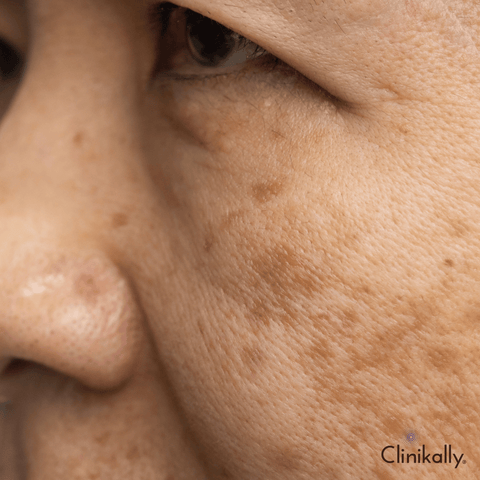
Ferulic acid is a potent antioxidant that has been shown to have several benefits for the skin, including reducing hyperpigmentation and fine lines. A common skin condition called hyperpigmentation is characterized by dark spots or patches of skin. Numerous things, such as sun exposure, hormonal changes, and inflammation, can contribute to its development. It has been demonstrated that ferulic acid brightens the skin and may aid in lessening the appearance of hyperpigmentation.
Additionally, it has been demonstrated that ferulic acid can shield the skin from environmental stressors like UV rays and other environmental stressors that can cause fine lines and wrinkles. It accomplishes this by scavenging free radicals, highly reactive molecules that have the potential to harm skin cells and quicken aging. Ferulic acid is frequently added to anti-aging skincare formulas along with other antioxidants like vitamin C and vitamin E. These products can support collagen production and shield the skin from oxidative stress, giving it a smoother, more youthful appearance.
Overall, ferulic acid has several potential benefits for the skin, including reducing hyperpigmentation and fine lines, and protecting the skin from environmental damage. However, it's important to note that individual results may vary, and it's always best to consult with a dermatologist before incorporating any new skincare products into your routine.
Ferulic acid for UV protection
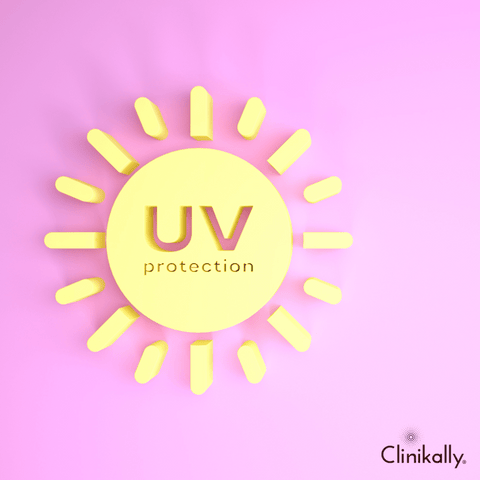
Ferulic acid has been shown to have potent antioxidant properties that can protect the skin from damage caused by UV radiation. When skin is exposed to UV radiation, it can generate reactive oxygen species (ROS) and other free radicals that can damage skin cells and accelerate aging. Ferulic acid can neutralize these free radicals, helping to prevent this damage.
According to research, ferulic acid can have even stronger photoprotective effects when combined with other antioxidants like vitamin C and vitamin E. In fact, one study in the Journal of Investigative Dermatology discovered that ferulic acid, vitamin C, and vitamin E combined were more effective than vitamin C or vitamin E alone at preventing skin damage from UV rays.
Ferulic acid has also been shown to have anti-inflammatory effects, which can help reduce the inflammatory response caused by UV radiation. This may help prevent sunburn, skin damage, and skin cancer.
Overall, while sunscreen is still the most effective way to protect the skin from UV radiation, incorporating ferulic acid into your skincare routine can provide additional protection and help prevent UV-induced skin damage. However, it's important to note that individual results may vary, and it's best to consult with a dermatologist on a dermatology platform before incorporating any new skincare products into your routine.
Ferulic acid for melasma and dark spots

Skin conditions like melasma and dark spots are frequently seen and are characterized by hyperpigmented patches of skin. As well as hormone changes and sun exposure, oxidative stress and inflammation are also thought to play a part in the development of these conditions.
Ferulic acid may help lessen the appearance of hyperpigmentation, including melasma and dark spots, and has been shown to have skin-brightening effects. This is because free radicals, highly reactive molecules that can harm skin cells and contribute to the emergence of hyperpigmentation, can be neutralized by it. Additionally, it has been demonstrated that ferulic acid has anti-inflammatory properties, which can aid in lowering the inflammatory response that may be a factor in the development of melasma and dark spots.
Research has shown that the effects of ferulic acid on reducing hyperpigmentation and improving skin tone are enhanced when it is combined with other skin-brightening ingredients like vitamin C and niacinamide.
Overall, despite the paucity of research on the precise effects of ferulic acid on melasma and dark spots, these conditions may benefit from its inclusion in a skincare routine due to its potent antioxidant and anti-inflammatory properties. However, before adding any new skincare products to your regimen, it is always advisable to seek the advice of a dermatologist.
Ferulic acid for acne scars and blemishes
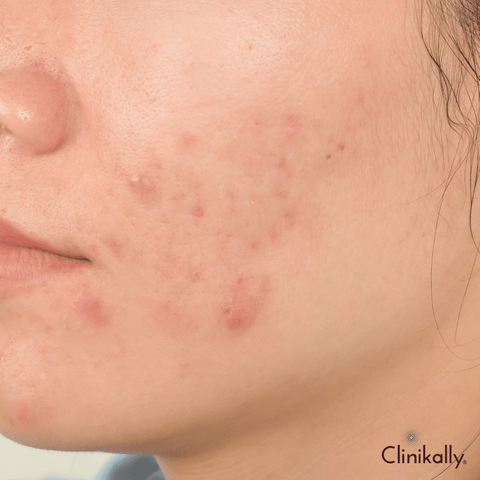
Ferulic acid has anti-inflammatory and antioxidant properties that may help to lessen the visibility of acne scars and blemishes. Inflammation and harm to the skin's collagen fibers are the main causes of acne scars. According to research, ferulic acid can help prevent new scarring and speed up the healing of existing scars by shielding collagen fibers from damage brought on by free radicals.
The anti-inflammatory qualities of ferulic acid may also assist in lowering acne-related redness and swelling, which may promote quicker healing and less scarring. Additionally, it has been demonstrated that ferulic acid has skin-brightening properties and may aid in minimizing the appearance of hyperpigmentation linked to acne scars.
While ferulic acid has a promising potential for reducing the appearance of acne scars and blemishes, it's important to note that individual results may vary, and it's always best to speak with a dermatologist before adding any new skincare products to your routine. In some circumstances, more aggressive therapies like chemical peels or laser therapy may be required to get the best results.
































